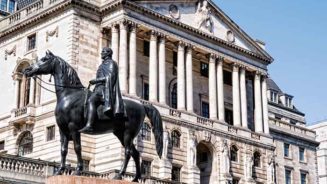It seems like only yesterday that the pension industry collectively dropped its jaws at the surprise announcement by the UK Government that it was abolishing the lifetime allowance, says Steve Berridge, the Technical Services Manager for IFGL Pensions.
That was March 2023 and much of the time since has been spent pouring over the Finance Bill as it made its way through parliament and more recently wrestling with the sheer complexity the replacement allowances have introduced. Meanwhile, the opposition announced that if elected, they would bring back the lifetime allowance.
Now the Prime Minister has wrong footed most commentators and pundits by calling an early General Election and so this issue of “will they, won’t they” has returned to the discussion table.
We are waiting for the publication of the party manifestos, but Labour has previously restated its desire to reinstate the lifetime allowance if elected, which based on polling at the time of writing, seems extremely likely.
Former Pensions Minister Steve Webb suggested a week ago, that the lifetime allowance will return, but not before April 2026 and then at a higher level.
The Institute of Fiscal Studies (IFS) has also published an article welcoming the return but suggesting that Labour has several options with pension benefit taxation, one of which is to increase the level of the lifetime allowance whilst capping the maximum tax-free cash sum. It also wondered if the current inheritance tax free status of pensions could be removed, which would be quite a major step.
Initial reaction to a reinstatement of the lifetime allowance has been strongest from doctors who it will be remembered the 2023 changes were particularly sold to. This group are now concerned that their large defined benefit pension pots might again potentially breach a lifetime allowance and leave them with some potentially significant tax charges.
Then in a fresh twist, over the weekend articles appeared suggesting that in fact Labour will not reintroduce the lifetime allowance after all, as it will be too complicated. We really are it seems playing a game of “in out, hokey pokey” with this subject.
This does all rather leave advisers in a difficult position of knowing what to say to their clients. Putting aside some of the more hysterical headlines in the Conservative supporting tabloid press, it is therefore worth examining the facts.
Firstly, the lifetime allowance was introduced by Labour in April 2006. However, the limit at that time was £1,500,000, which in today’s money is around £2,500,000. Labour then increased the lifetime allowance in stages, up to £1,800,000 at one point. Labour also introduced several protections to aid those with larger pension pots which had been built up before the introduction of the lifetime allowance.
After the coalition Government was elected in May 2010, the lifetime allowance limit was reduced in stages, first to £1,500,000 in 2012, then £1,250,000 in 2014 and finally £1,000,000 in 2016. It was then increased with inflation before being frozen at £1,073,100 from April 2020 onwards. The new LSDBA and LSA allowances are based on this figure.
All this history does lead us then to conclude that yes, perhaps Labour will, if elected, look to reintroduce the lifetime allowance, but at a higher level. We will just have to see, as this election it seems will bring more U-turns from both the main parties.
In the immortal words of Sergeant Pike then “don’t panic Captain Mainwaring”. Or for advisers perhaps the sensible approach might be “Don’t worry too much about what tomorrow might bring but consider options for your clients in the here and now”.
This promises to be a very interesting General Election in more ways than one and those us in the pension industry will certainly be watching developments very keenly over the coming months.
The only certainties in life for some of us right now appear to be “death, taxes and changes to pension legislation”.
By Steve Berridge, technical services manager for IFGL Pensions





